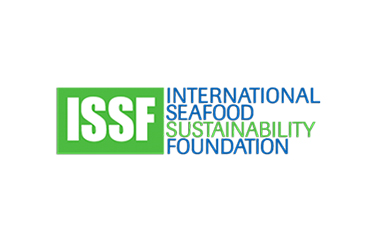The International Seafood Sustainability Foundation (ISSF) has announced the adoption of a new conservation member for participating companies aimed at reducing the annual sourcing of Indian Ocean yellowfin tuna.
Called ISSF Conservation Measure 1.3 IOTC Yellowfin Tuna Rebuilding, the measure will take effect if the Indian Ocean Tuna Commission (IOTC) doesn’t take action at its June 2021 meeting to safeguard the stock. The IOTC delayed any decision on the yellowfin stock in March, a move criticized by NGOs and seafood companies.
At the March meeting, the IOTC member states failed to agree on a proposal that would have cut the regional yellowfin tuna catches by 20 percent compared to 2014 levels. The proposal had been backed by a coalition of more than 100 NGOs, and multiple seafood companies.
The ISSF has been among the organizations calling for action by the IOTC.
“For more than a year, ISSF and our partners have been urging IOTC to heed scientific advice and act to protect Indian Ocean yellowfin tuna,” ISSF President Susan Jackson said. “But the Commission has repeatedly failed to adopt effective measures to rebuild the yellowfin stock, including at its special meeting held in March 2021.”
Current advice from the IOTC Scientific Committee, according to the ISSF, is that yellowfin tuna catches in the Indian Ocean need to be cut by at a minimum of 11 percent to reduce the total catch to less than 403,000 metric tons annually. The latest ISSF proposal, Measure 1.3, would have any company participating in the ISSF reduce its annual sourcing of Indian Ocean origin yellowfin by 11 percent, based on the company’s annual average of purchases from 2017 to 2019.
Measure 1.3, the organization said, will go into effect on 31 July, 2021, if the IOTC “once again fails to adopt a measure to effectively implement the most recent IOTC SC advice at its annual meeting in June.”
The ISSF is continuing to call on the IOTC to adopt measures to protect the Indian Ocean yellowfin tuna stock. Those measures include: implement a rebuilding plan that calls for reduced catch; address overcatches; monitor and manage catches of skipjack so they do not exceed the adopted harvest control rules; accelerate the development of management procedures and agree on permanent limits and target reference points for tropical and temperate tunas by 2022; request science-based limits on fish aggregate device deployments; and establish a working group on electronic monitoring to develop minimum monitoring standards by 2022.
“ISSF and its participating companies are committed to the long term sustainable use of the valuable Indian Ocean tuna resources,” Jackson said. “We will take steps as needed – with scientific guidance in mind – when fisheries management falls short. And we will do so transparently through a well-established audit and compliance reporting process.”







